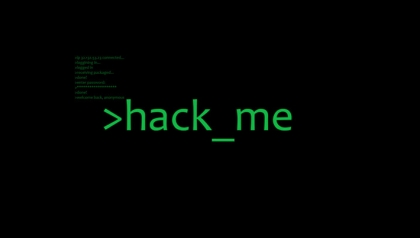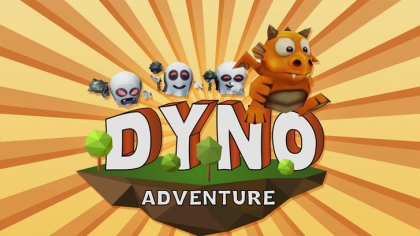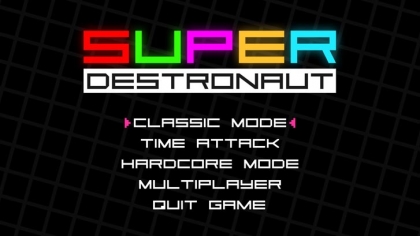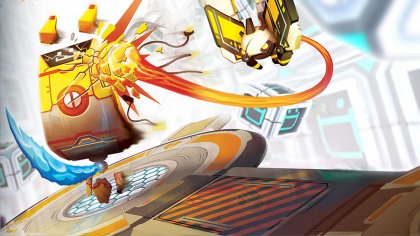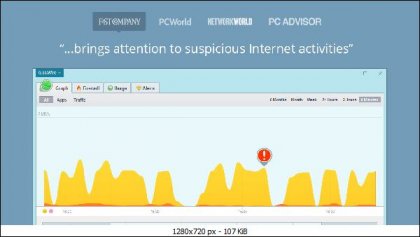
Mark Klink
Mark is a self-proclaimed nerd who has an undying need to take anything and everything tech related apart at the seams and break it down to the basics. His interest in video games reaches all the way back to his early days of playing Road Rash on the Sega Genesis. Games like Tony Hawk’s Pro Skater and Unreal Tournament only fueled Mark’s desire to get his hands dirty in video game design by offering in-depth level editors and a budding modding community. But alas, Mark was never a very good programmer, so when he’s not playing video games, he delves into information security and network engineering including Capture the Flag Tournaments and writing on current cyber security issues.
hack_me Early Access Review
At this point in time, hack_me has too little substance and too short of a playthrough to warrant a purchase. That being said, I will be watching the updates and periodically check-in for some improvements. Hopefully, we'll get a more polished product by the official release.
Robot Squad Simulator 2017 Review
Overall, Robot Squad Simulator offers a unique gaming experience that bridges the gap between simulation and arcade in a relatively unexplored genre. Between its good looks and innovative gameplay, there's a lot to like. A worthwhile purchase, if you’ve ever wanted a solid tactical robot game.
Dyno Adventure Review
Fix the problems and release a finished product. Commit to your adorable Dyno and his adventures. Throw some music at him, make sure he collides with objects, and add some funkiness to the mechanics and physics he faces. Until you do so, Dyno Adventure won't have enough gameplay to justify a purchase.
The Bunker Review
The Bunker is a heart-pounding journey through the mind of a lone survivor as he struggles to come to grips with a complicated past. It does an excellent job at drawing attention to what many have cast off as a forgotten genre in gaming. It's unlike any other experience you'll have.
Vex Review
For its price, VEX is well worth the buy. 45 levels of good fun that will leave you surprised at what can still be done in the overexploited realm of indie arcade platformers. A strong title that does an excellent job at revitalizing classic game mechanics with a minimalistic approach and refreshing visual style.
Momonga Pinball Adventures Review
Theress a lot to be enjoyed in the short adventure of Momo, and to be clear, this is not a bad game. It's just too short to be enjoyed the way it could. Everything from the charming atmosphere to the enjoyable arcade makes Momonga a title worth checking out. The abrupt ending leaves a lot to be desired and it's a shame. This game could be the Japanese flying squirrel pinball adventure title we all long for.
Super Destronaut Review
Overall, I can easily recommend Super Destronaut because of its attractive price and retro-style gameplay, but an arcade game without any leaderboards and a turn-based multiplayer mode make this game fun for a quick session every once and a while, but nothing that stands out for the long term.
Blade Ballet Review
Blade Ballet’s sleek-looking, fast-paced, competitive gameplay, makes it an excellent choice for playing with family and friends. The combination of spinning robots with simple attacks and great level design, make Blade Ballet stand out from its competitors. It’s a great addition to the reemerging “Couch Co-op” genre, but the lack of AI bots for a single-player mode makes this a strictly multiplayer game.
ABZÛ Review
I just can't emphasize how incredible ABZÛ looks. The gorgeous trailers and screenshots online don't even do it justice; you just need to explore this ocean firsthand. A worthy purchase for anyone that can appreciate a beautiful, at-your-own-pace, exploration game.
Tumblestone Review
Tumblestone is the most addicting puzzle game that I’ve played in a long time, and undoubtedly, the most fun you and three of your friends have had playing with blocks since kindergarten.
Glasswire Review
When it comes to building computers, you'd be hard pressed to find any hardcore gamers that didn't customize their own souped-up gaming rigs, complete with flashing LED's, high-speed fans (or sleek water tubes), and as much processing power as the weight the desk can handle. However, when it comes to really understanding the network activity that originates from these gaming monstrosities, many gamers (and many IT professionals) don't have a clue. As an infosec professional for the past four years, I thought I had a solid understanding of the activity on my home network. However, GlassWire's new host-based firewall showed me a whole new world of activity that was happening behind the scenes, just under my fingertips. Without my knowledge, my laptop was averaging between twenty and thirty connected applications, ranging from anti-virus to web browsers to online game updates and Steam, all competing for valuable bandwidth. Fortunately, GlassWire allows ordinary users to block unwanted applications from stealing network resources while reserving those valuable bytes for lag-free gaming bliss.
